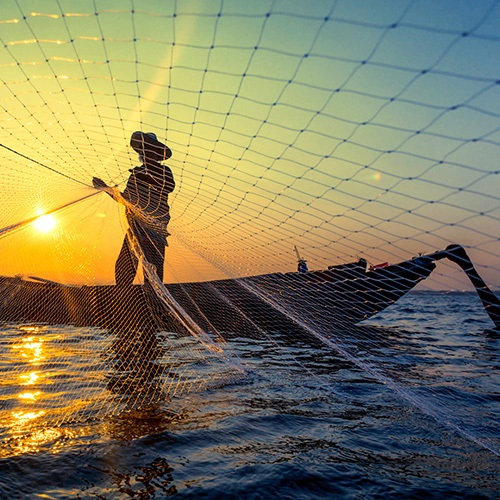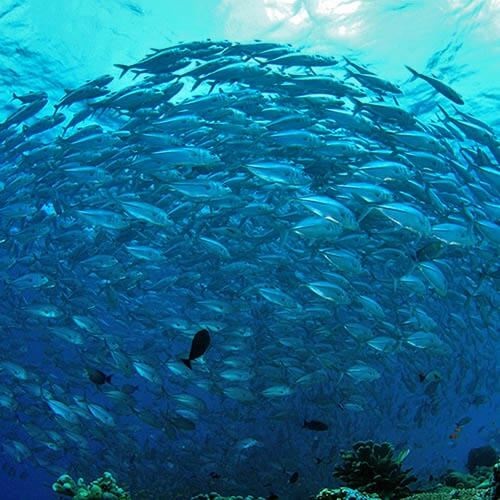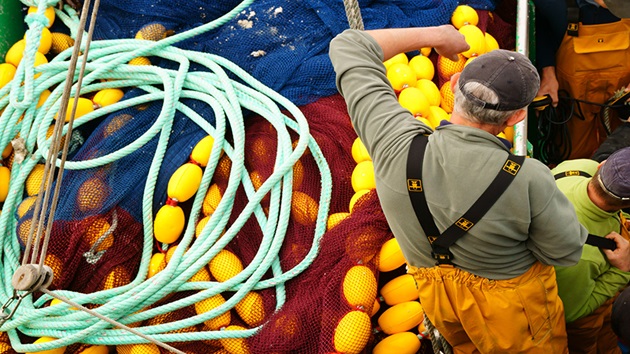Small-scale fisheries can face challenges in showing their sustainability and becoming certified. We want to make sure that all fisheries – regardless of size and location – can use the MSC Fisheries Standard and operate sustainably.
Making sure small-scale fisheries operate sustainably is not only important for healthy marine habitats and ecosystems but for local communities too. Small-scale fisheries contribute to around half of global seafood catch and employ more than 90 per centof all those working for fisheries, providing an essential source of food and the livelihoods of millions worldwide.
Small-scale fisheries and the MSC
We have engaged with small-scale fisheries since the MSC was established. While the number of MSC certified small-scale fisheries is increasing all the time, they currently make up a relatively small part of our program.
18%
2.4%
40
10
different fishing gears and methods
22
countries and 10 FAO ocean areas worldwide
80,000
livelihoods supported
Challenges to certification
Small-scale fisheries can face challenges in showing they meet the MSC Fisheries Standard and achieving certification. We are committed to helping them with this, and our ambition is for more than a third of global marine catch to be engaged with our program by 2030.
Small-scale fisheries that are well-managed may lack the scientific data needed to demonstrate sustainability. This can include data on stock status estimates and impacts on target species and habitats.
Fisheries may also need to make improvements to their environmental performance before they can meet our sustainability requirements. This can be challenging when they have limited management capacity or financial resources.
Some fisheries sometimes find it difficult to adopt sustainable fishing practices because of lack of technical capacity, insufficient government support and limited engagement by supply chain and local markets.
Supporting small-scale fisheries
To help small-scale fisheries access the MSC program, we have developed a flexible suite of tools, training and financial support. We also facilitate assessment of small-scale fisheries using informal and traditional methods by providing assessors with guidance to interpret these management systems, and take the scale and intensity of fishing activities into account.
Data-limited fisheries
Our Risk-Based Framework helps fisheries that fisheries lack the scientific data typically needed to demonstrate their sustainability. The Risk-Based Framework uses information from stakeholder workshops and all available data to generate a score which can be used during a fishery assessment.
Capacity-building program
Our capacity building program provides fisheries with technical training and support. This aims to increase understanding of our Standard and equip fisheries with the knowledge and skills required to implement a successful process towards certification and sustainability.
Pathway to Sustainability
Our Pathway to Sustainability program helps fisheries making improvements and builds an environment that enables the sustainable management of fisheries in partnership with governments and other stakeholders. The program focuses on small-scale fisheries and fisheries in the Global South.
Our fishery improvement tools support fisheries towards certification, including templates for pre-assessment to identify gaps in performance and for improvement action plans.
MSC Improvement program
Our Improvement Program supports fisheries committed to making improvements towards sustainability and achieving MSC certification.
Fisheries in the program have their progress annually verified by assessors and are expected to achieve at least a conditional pass against our Standard within five years.
Ocean Stewardship Fund
Small-scale fisheries can also apply for financial support through our Ocean Stewardship Fund. This includes support for costs of an assessment for recertification through the Recertification Assistance Fund. Fisheries in MSC Improvement program are eligible for the Transition Assistance Fund, which supports the cost of the required sustainability improvements. Fisheries can also apply for the Science and Research Fund to support the costs of making the improvements needed to retain certification.
Improving accessibility for small-scale fisheries
Our blog discusses how we want to improve the way small-scale fisheries engage with the MSC program, and findings from a recent report.
Find out more
square.tmb-medium500.jpg?Culture=en&sfvrsn=302bf5f7_1)
Pathway to sustainability
The MSC is working with NGOs, governments, retailers and funders around the world to create a pathway to sustainability for small-scale fisheries and fisheries in developing countries.

Ocean Stewardship Fund
The Ocean Stewardship Fund aims to increase the number of sustainable fisheries worldwide. We are accelerating progress by funding innovative research and supporting fisheries at all stages on the path to sustainability.

What is sustainable fishing?
Sustainable fishing means leaving enough fish in the ocean, respecting habitats and ensuring people who depend on fishing can maintain their livelihoods.

